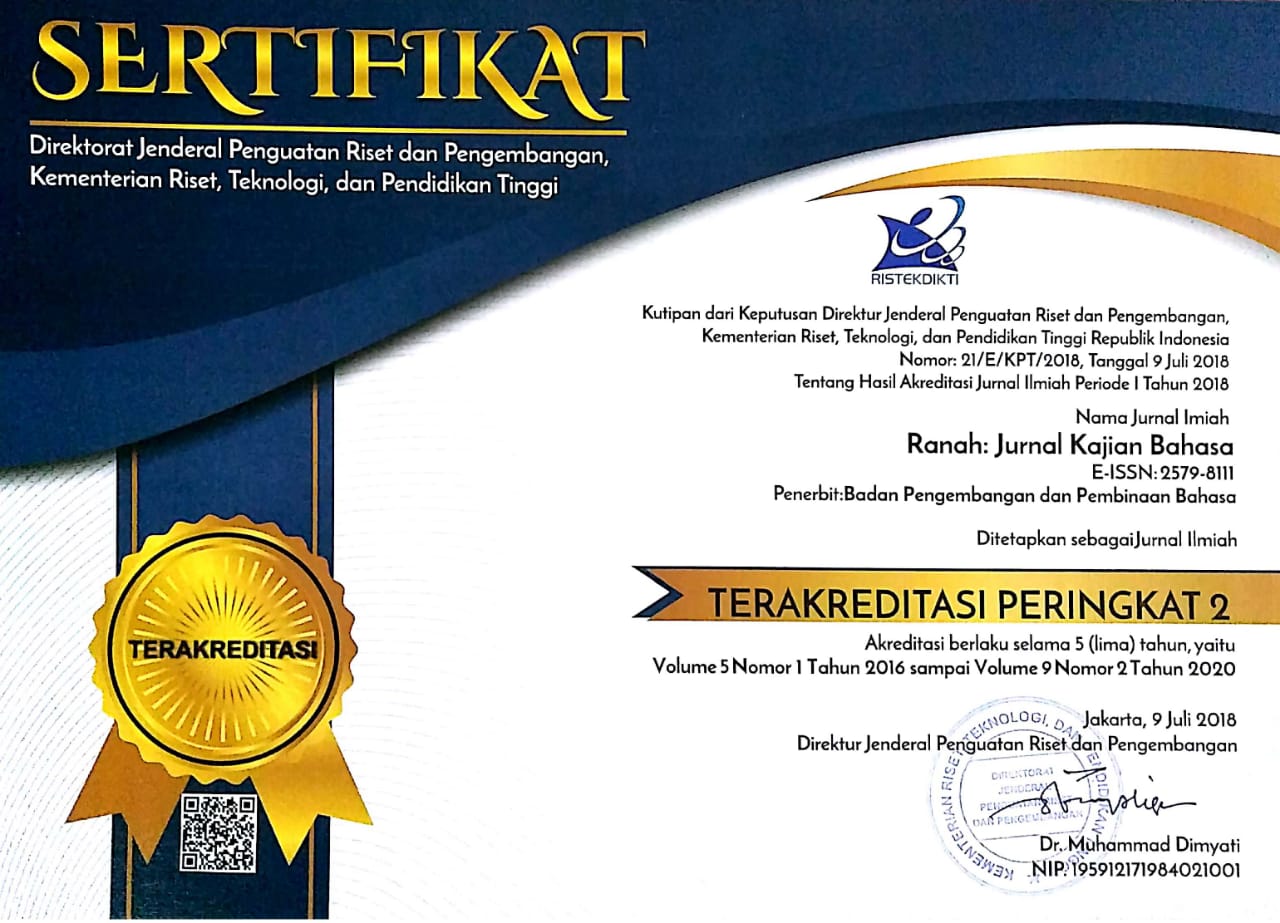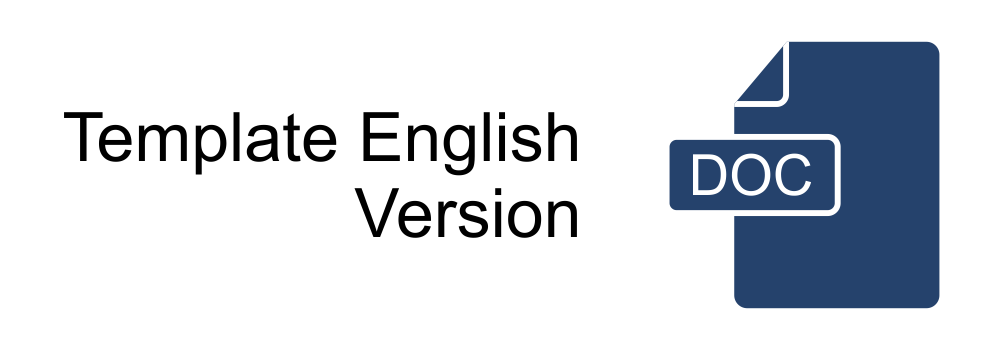News Media Partiality Concerning LGBT Issues in Indonesia: A Hidden Agenda of The Jakarta Post and Jakarta Globe
Abstract
This study is aimed at investigating the representation of LGBT in the Jakarta Post and Jakarta Globe and revealing hidden ideologies embedded in the representations. This study more specifically focuses on identifying how the two media deploy transitivity choices in reporting LGBT and gaining representational meanings from the transitivity choices. This study employs the qualitative method and transitivity analysis under the framework of Fairclough’s three-dimensional approach (1989). The study reveals that the Jakarta post tends to represent LGBT as a more passive participant in a way that certain circumstances shape them as a discriminated and intimidated group by several religious groups, society and government officials, therefore this position has caused Human Rights activists and several government officials to defend them. The media also depict LGBT as an acceptable identity and acknowledged phenomenon in Indonesia. On the other hand, Jakarta Globe tends to represent LGBT as a more active participant that they are given more space to express their sufferings and struggles that trigger them to claim their own rights through their active involvement in anti-LGBT discussions and the support provided by Human Rights activists. The findings suggest that the two media are struggling to promote democratic values in attempts to contribute to establishing LGBT acceptance in Indonesia (the Jakarta Post) and critiquing the discrimination as a means of ending intimidation against LGBT (Jakarta Globe).
Abstrak
Penelitian ini bertujuan untuk mendapatkan makna representasi dari pilihan transitivitas yang digunakan oleh laporan berita The Jakarta Post dan Jakarta Globe dalam mewartakan kasus LGBT dan mengungkapkanideologi yang mendasari representasi tersebut. Penelitian ini menggunakan metode kualitatif dan analisis transitivitas di bawah kerangka pendekatan tiga dimensi Fairclough (1989). Penelitian ini mengungkapkan bahwa The Jakarta Post cenderung merepresentasikan LGBT sebagai partisipan yang lebih pasif sehingga keadaan tertentu membentuk mereka sebagai kelompok yang terdiskriminasi dan terintimidasi oleh beberapa kelompok agama, masyarakat, dan pejabat pemerintah; dengan demikian, posisi ini menyebabkan aktivis HAM dan beberapa pejabat pemerintah membela mereka. Media juga menggambarkan LGBT sebagai identitas berterima dan fenomena yang diakui di Indonesia. Di sisi lain, Jakarta Globe cenderung merepresentasikan LGBT sebagai partisipan yang lebih aktif sehingga mereka diberikan ruang lebih untuk mengekspresikan penderitaan dan pergulatan mereka yang memicu mereka untuk mengklaim hak mereka melalui keterlibatan aktif dalam diskusi anti-LGBT dan dukungan yang diberikan oleh aktivis HAM. Hasil penelitian ini menyimpulkan bahwa kedua media berupaya mendorong nilai-nilai demokratis sebagai usaha untuk berkontribusi dalam menumbuhkan penerimaan terhadap LGBT di Indonesia (The Jakarta Post) dan mengkritik diskriminasi untuk menghentikan intimidasi terhadap LGBT (Jakarta Globe).
Keywords
Full Text:
PDFReferences
Ahmed, B. (2016). Indonesia’s frightening and sudden turn against LGBT people. Retrieved from https://thinkprogress.org/indonesias-frightening-and-sudden-turn-against-lgbt-people-fa63b88fb113#.v6krva34z
American Psychological Association. (2015). Guidelines for psychological practice with transgender and gender nonconforming people. American psychologist, 70(9), 832-864. doi.org/10.1037/a0039906.
Arifin, S. (2010). Attitudes to human rights and freedom of religion or belief in Indonesia: Voices of Islamic religious leaders in East Java. Yogyakarta, Indonesia: Kanisius
Badgett, L., Hasenbush, A., & Luhur, W. (2017). LGBT exclusion in Indonesia and its economic effects. Los Angeles, LA: William Institute
Boutrous, B. (1996). An agenda for democratization. New York, NY: United Nations
Fairclough, N. (1989). Language and power. New York, NY: Longman Publishing
Fairclough, N. (1992). Discourse and social change. Cambridge, United Kingdom: Blackwell Publishing
Fairclough, N. (1995). Critical discourse analysis: The critical study of language. New York, NY: Longman Publishing
Fairclough, N. (1995). Media discourse. London, United Kingdom: Edward Arnold Publishers
Fairclough, N. (2003). Analyzing discourse. London, United Kingdom: Routledge
Fairclough, N., & Fairclough, I.(2012). Political discourse analysis. London, United Kingdom: Routledge
Fatmawati, N. (2017). An analytical study on the news representation of LGBT in The Jakarta Post viewed from Van Dijk‟s discourse analysis theory (Undergraduate thesis). University of Mataram. Mataram, Indonesia
Gibbons, T. (2015). Active pluralism: Dialogue and engagement as basic media policy principles. International Journal of Communication, (9), 1382-1399
Gurevitch, M., Bennet, T,. Curran, J., & Wollacott, J. (2015). Class, ideology and media in Culture society and media. London, United Kingdom: Routledge
Hadeshian,S. (2006). The role of media, presented at CCR international refugee rights conference, Toronto,17 – 19 june 2006, US: CCR Conference Publishing
Hefner, R. (2000). Civil Islam: Muslims and democratization in Indonesia. Oxfordshire, United Kingdom: Princeton University Press
Human Rights Watch. (2016, August 11). Interview: Indonesia's LGBT community under threat. Human Rights Watch. Retrieved January 3, 2017 from https://www.hrw.org/news/2016/08/11/interview-indonesias-lgbt-community-under-threat
Human Rights Watch. (2013). Human right fact sheets.US: HRW.org
Jakarta Globe. (2008, December 6). 'Deviants' take on porn law. Retrieved January 31, 2017 from http://jakartaglobe.id/archive/deviants-take-on-porn-law/
Jakarta Globe. (2016, February 24). LGBT safety should be placed under the constitution: Activists. Jakarta Globe. Retrieved January 22, 2017 from http://jakartaglobe.id/news/lgbt-safety-placed-constitution-activist
Jakarta Globe. (2015, March 15). Rights activists lash out at MUI’s anti-LGBT fatwa. Jakarta Globe. Retrieved January 31, 2017 from http://jakartaglobe.id/news/rights-activists-lash-muis-anti-lgbt-fatwa/
Jakarta Globe. (2016, February 24). Male actors not allowed to show effeminate behavior on screen, says broadcasting body.
Jakarta Globe. Retrieved January 31, 2017 from http://jakartaglobe.id/news/male-actors-not-allowed-show-effeminate-behavior-screen-says-broadcasting-body/
Jakarta Globe. (2016, February 24). Police disperse pro-LGBT rally in Yogyakarta. Jakarta Globe. Retrieved January 3, 2017 from http://www.jakartaglobe.beritasatu.com/news/police-disperse-pro-lgbt-rally-yogyakarta/
Khalik, A. (2008, March 28). Islam 'recognizes LGBT'. The Jakarta Post. Retrieved February 15, 2017 from http://www.thejakartapost.com/news/2008/03/27/islam-039recognizes-homosexuality039.html
Lobodally, A. (2016). Metamorfosis simbolik gay dalam pemberitaan kasus prostitusi gay di Detik.com. Jurnal Bisnis dan Komunikasi, ISSN 2356 - 4385
Mydans, S. (1996, October 20. Family Tied to Democratic Party Funds Built an Indonesian Empire. The New York Times. Retrieved June 27, 2017 from http://www.nytimes.com/1996/10/20/world/family-tied-to-democratic-party-funds-built-an-indonesian-empire.html
Muthmainnah, Y. (2016). LGBT human rights in Indonesian policies. Indonesian Feminist Journal 4(1)
Oktaviani, S. (2016). Diskriminasi LGBT di media masa (Analisis wacana kritis pada pemberitaan LGBT di koran Republika edisi 15-21 Februari 2016) (Thesis). Jakarta: Bakrie University
Pew Research Center. (2013). The global divide on homosexuality. Retrieved October 15, 2016 from http://www.pewglobal.org/2013/06/04/the-global-divide-on-homosexuality/
Philo, G., & Happer, C. (2013). The role of the media in the construction of public belief and social change. Journal of Social and Political Psychology, 1(1). doi:10.5964/jspp.v1i1.96
Pursika, I. (2009). Kajian terhadap semboyan "Bhinneka Tunggal
Ika". Jurnal Pendidikan dan Pengajaran, 42(1), 15-20
Shoemaker, P. (2006). News and newsworthiness: A commentary. Journal of Communication, 1(31). doi 10.1515/commun.2006.007
Subhrajit, C. (2014). Problems faced by LGBT people in the mainstream society: Some recommendations. International Journal of Interdisciplinary and Multidisciplinary Studies, 1(5), 317-331. ISSN: 2348 –0343
Sumedi, D. (January 18, 2017). Kalimantan Selatan minta waria terlibat dalam pembangunan. Tempo. Retrieved March 4, 2017 from https://nasional.tempo.co/read/news/2017/01/18/058837174/kalimantan-selatan-minta-waria-terlibat-dalam-pembangunan
Sundaryani, F. (2016, February 14). Commission wants TV, radio free of LGBT. The Jakarta Post. Retrieved February 15, 2017 from http://www.thejakartapost.com/news/2016/02/14/commission-wants-tv-radio-free-lgbt.html
Syarifuddin, A. (2016). Agama dan media massa: (Analisis framing pemberitaan LGBT di SKH Republika edisi Februari 2016). UIN Yogyakarta, Indonesia
The Jakarta Post. (2015, March 18). In response to anti-LGBT fatwa, Jokowi urged to abolish laws targeting minorities. The Jakarta Post. Retrieved February 15, 2017 from http://www.thejakartapost.com/news/2015/03/18/lgbt-fatwa-jokowi-urged-abolish-laws-targeting-minorities.html
The Jakarta Post. (2016, February 12). Indonesia must protect LGBT rights: Human Rights Watch. The Jakarta Post. Retrieved January 22, 2017 from http://www.thejakartapost.com/news/2016/02/12/indonesia-must-protect-lgbt-rights-human-rights-watch.html
DOI: https://doi.org/10.26499/rnh.v7i1.566
Refbacks
- There are currently no refbacks.








